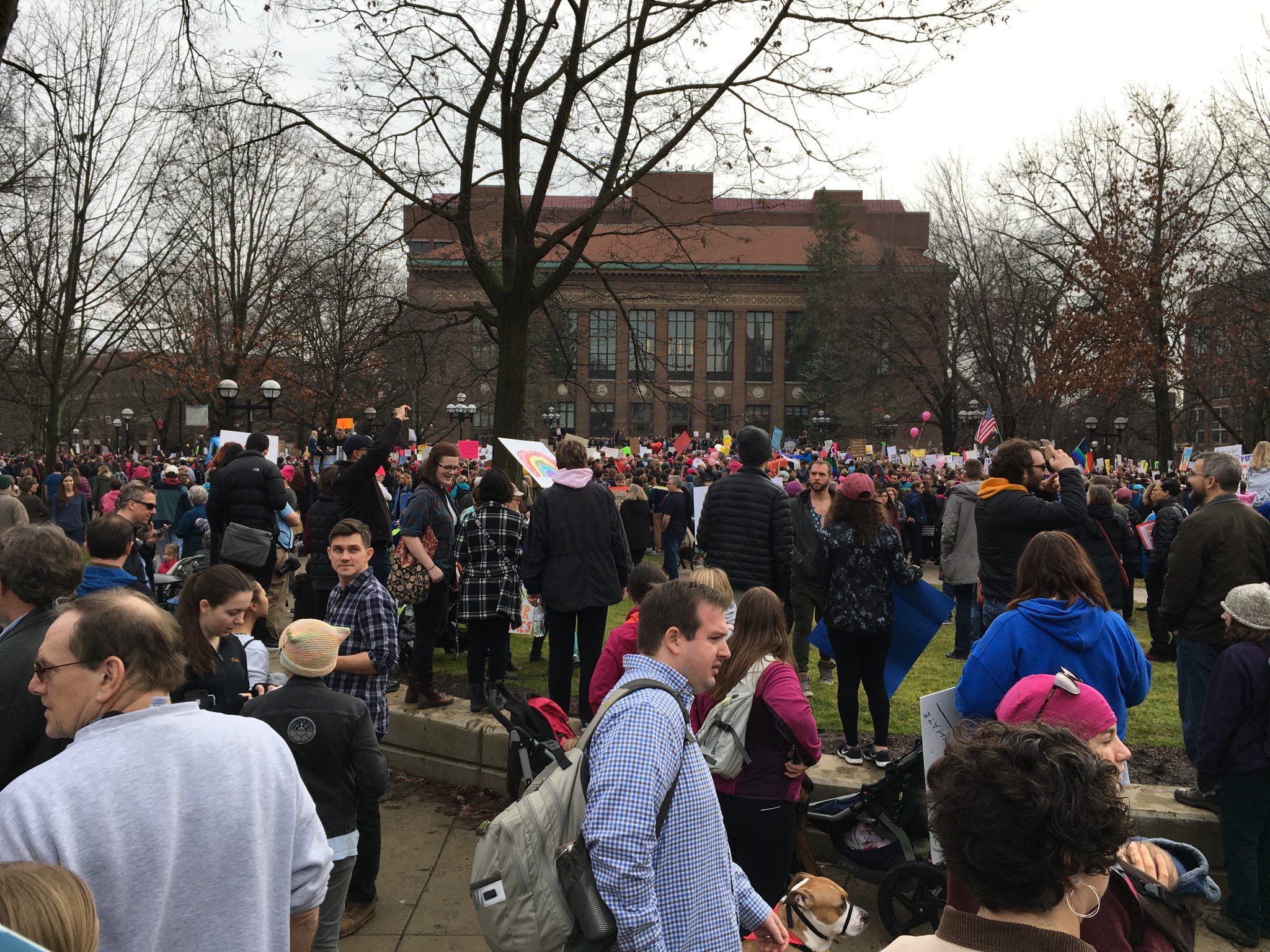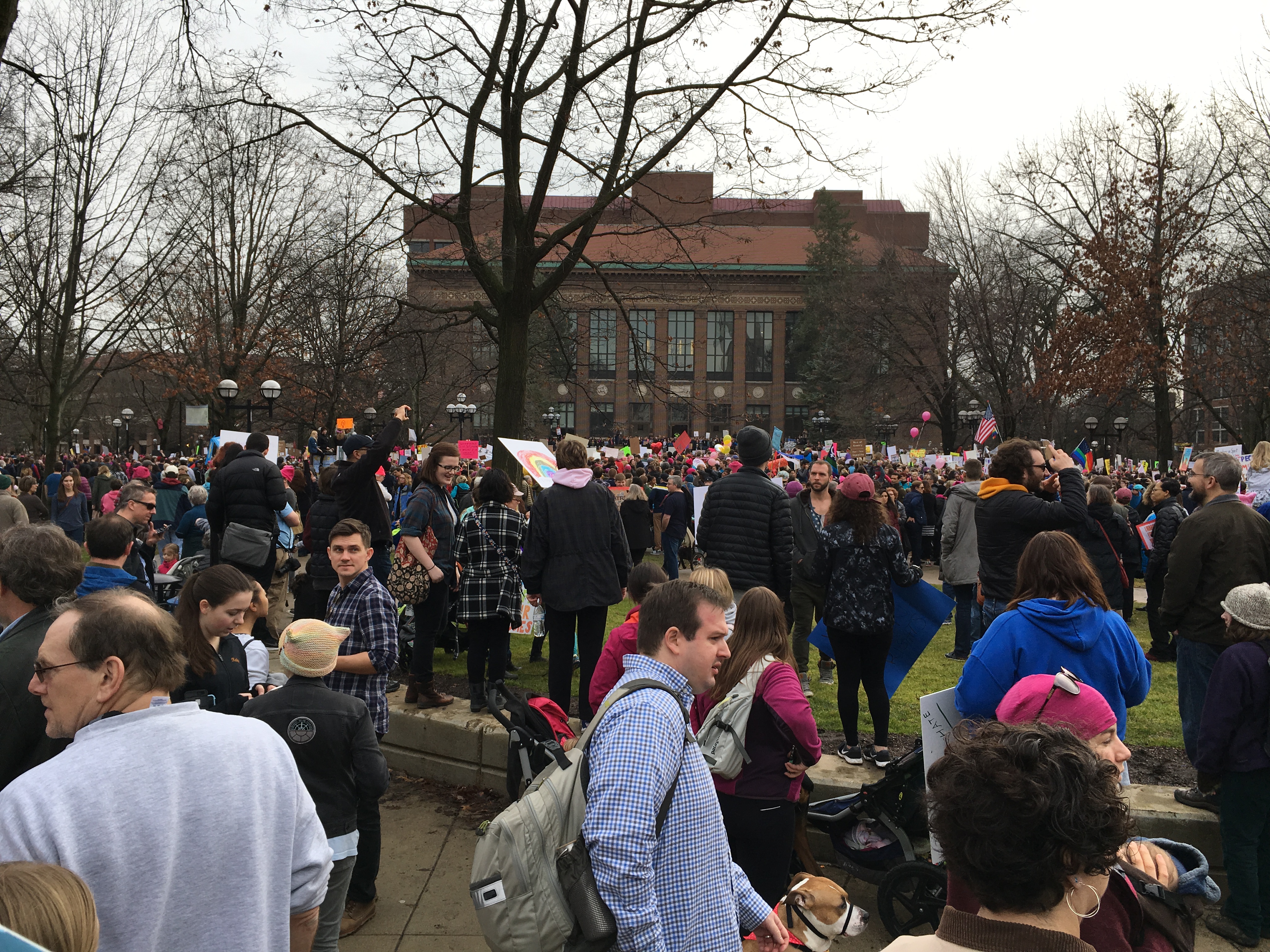How Does a Social Moment Become a Political Movement?
Will the Women’s March become a movement?


Over the weekend millions of women and men around the world marched in support of women’s rights, in addition to myriad other personal and political reasons.
But the questions remains, can this type of march be transformed into a political movement?
Kidada Williams, a history professor at Wayne State University, and Kary Moss, executive director of ACLU of Michigan, both join Stephen Henderson on Detroit Today to discuss transforming social moments into political movements.
Williams says she’s heard from many people who wonder what’s next after the Women’s March. She says people who want to create political movements would do well to learn from American history.
“I think one of the differences we see today is that we only have new tools, new actors, new agendas,” says Williams. “I think that’s the only difference. Organizing is essentially still the same.”
While not a stated intent of the Women’s March, most of those gathered protested President Donald Trump’s new administration. Moss says there is anxiety throughout the nation and world over what the administration might do to hurt civil liberties.
“There’s also, I think, a reflection of real fear and concern about rollbacks of our basic civil rights protection that have taken decades, if not centuries, to secure,” says Moss. “And I also think it is reflective of a real renewed energy and commitment. But democracies are messy, and social movements are messy, and I think that what we’re going to see is a lot of disorganized activity and reforming of the more formal advocacy structures. And the challenge is going to be being able to develop effective ways to counter the most troubling substantive proposals.”
Dennis Moore, the founder and director of the Willow Run Tea Party Caucus, also joins Henderson to discuss how political movements evolve. The Tea Party had a dramatic impact on American political institutions after forming after the election of President Barack Obama.
“You can’t make a movement out of a moment. You have to do grassroots’ activities… if you want that party to reflect your values, you’re going to have to get in front of the mirror.”
Click on the audio player to hear the full conversation.
